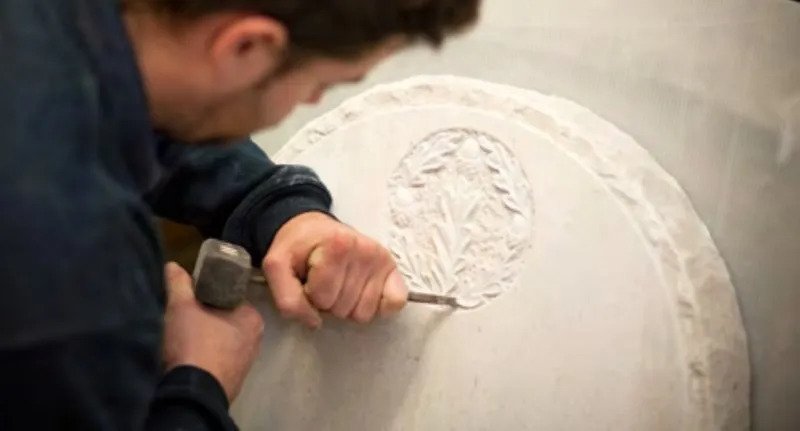
Apprentice stonemasons help cut and prepare the stone for constructing or repairing stone structures. Examples include houses, historical buildings, monuments, headstones, and sculptures. Granite and quartz are two more natural materials that stonemasons may use.
Stonemasons cut and prepare the stone for constructing or repairing stone structures. Examples include houses, historical buildings, monuments, headstones, and sculptures. Granite and quartz are two more natural materials that stonemasons may use.
Responsibilities
Throughout your apprenticeship, you may help:
- build stone walls or fit cladding using mortar and specialist fixings
- repair damaged stonework on old buildings and monuments
- carve or repair statues or memorial headstones
- make and fit stonework like window frames, archways and ornamental garden pieces.
Salary
- Apprentice stonemasons can earn £19,000 – £25,000
- Trained stonemasons with more experience can earn £25,000 – £35,000
- Senior stonemasons can earn higher salaries
- Self-employed stonemasons set their own pay rates.
Working hours
You will typically work 43 to 45 hours per week, occasionally working evenings and weekends.
Working environment
You could work on a construction site or in a workshop.
Your working environment may be at height, outdoors some of the time, dusty, noisy and physically demanding.
You may need to wear safety clothing and use safety equipment.
Qualifications
Qualifications you can achieve as an apprentice stonemason include:
- Level 2 Stonemason – Entry requirements for this level include some GCSEs, usually including English and maths, or equivalent, for an intermediate apprenticeship.
This qualification typically takes 24 months to complete as a mix of workplace learning and off-the-job study.
Skills
On a stonemason apprenticeship, you’ll learn:
- the ability to work well with your hands
- knowledge of building and construction
- the ability to use your initiative
- knowledge of maths
- physical skills like movement, coordination and dexterity
- to be thorough and pay attention to detail
- the ability to work well with others
- ambition and a desire to succeed
- to be able to carry out basic tasks on a computer or hand-held device.
Career path and progression
As you gain experience, you may be promoted to supervisory roles like site supervisor or clerk of works.
You may even establish your own stonemasonry business.
You might also work in a related profession like estimating or construction management.
With more education, you may work as a stonemason or bricklaying instructor at a community college or training centre.
